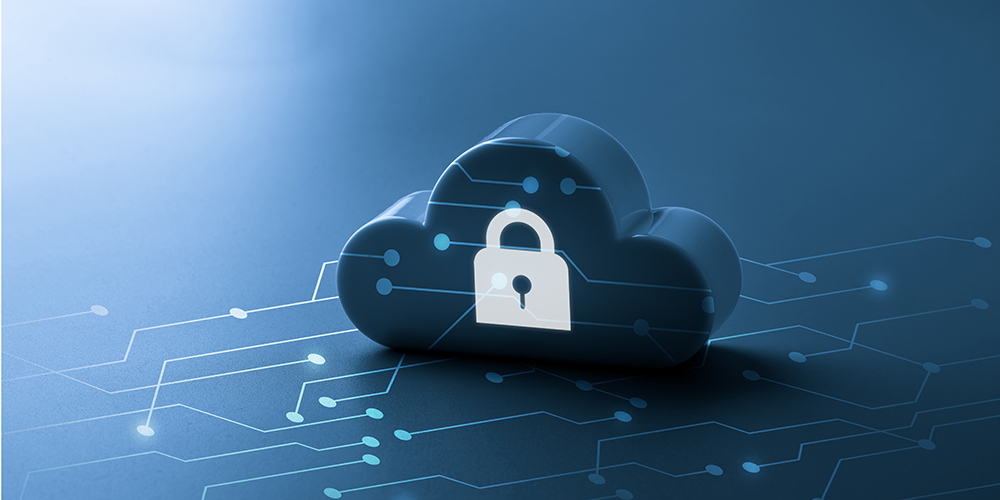
Sep 14, 2023 | SMB Technology, SMB Technology, SMB Technology, SMB Technology, Technology News
While cloud computing is now a common way to provision computing resources and outsource IT functions, security can be a (perceived) obstacle to adoption. Cloud security can be a shared responsibility, however, between the customer and provider. Read on to learn more about what to expect from a current or prospective provider, and what you can do yourself to stay secure. Cloud Security and Why it Matters Cloud computing, although providing multiple benefits, also presents security concerns. With compute resources available through the Internet, the greater amount of data moving between networks and devices, data which can be lost or stolen. Cloud security is a combination of technology, processes and policies that can keep your applications and data safe, reliable and available. Who ensures this, your company or the provider? Cloud Security a Shared Responsibility The answer is, both. In general, the provider provides and maintains the infrastructure, and the company looks after the data and applications “in” the cloud. How much responsibility either party assumes depends on the type of platform used. For instance, for Infrastructure as a Service (IaaS), the provider furnishes just that – infrastructure–and your company needs to manage the security of its own data and applications. Other platforms like PaaS and SaaS provide more oversight. Sometimes the CSP will also offer data storage and monitoring. Top providers may even offer security-by-design or layered security as well as network monitoring and identity access management. Your Company’s Role In general, a provider that handles more of the functions also protects more. Beginning with Infrastructure as a Service (IaaS), you secure...

Jun 16, 2022 | SMB Technology, SMB Technology, SMB Technology, SMB Technology, Technology News
Cloud computing is used by many businesses, including small to medium-sized companies. Reasons for moving to the cloud include the desire for someone else to operate and maintain infrastructure, and to use a pay-as-you-go subscription model. In spite of the draw of cloud computing, companies need to consider what data they want in the cloud, and how that data will be managed and protected. Read on to learn more about what to consider when looking for a cloud provider Cloud Computing Offers Benefits and Raises Questions Cloud computing is often a good way to reduce infrastructure costs by accessing computing resources remotely over the Internet. Thus, a company can leave the infrastructure and its maintenance to a provider, and pay according to resources used. Depending on the service levels, some responsibility for data management may fall on your business. This provides flexibility for you and shares the responsibility with you. According to a CompTIA guide for cloud security, recent data incidents have drawn attention especially to how a CSP handles data. But amazingly, not that many companies—small to medium-sized businesses among them—do a “deep dive” in researching a provider. Commonly, company executives worry most about system outages and data breaches, which are concerns. However, with the amount of data generated by businesses, there are also the issues of data integrity, regulatory compliance, and disaster recovery. Considerations for Cloud Security A key consideration for cloud security starts with the understanding of your service level agreement (SLA). For example, you may want to keep an archive of your email for compliance reasons; if so, ensure that...

Dec 7, 2020 | SMB Technology, SMB Technology, SMB Technology, SMB Technology, Technology News
With remote work a fixture in our economy, technology has risen to meet the challenge. From virtual desktops to unified communications, it is easy to work anywhere. Read on to learn how technology based in the Cloud can keep your business robust in 2021 and beyond. Stay Connected with Unified Communications Unified Communications as a Service (UcaaS) provides phone, chat, text, email, web conferencing and more as an integrated solution available in the Cloud. Voice over IP (VoIP) and other Cloud technologies remove the dependency of on-premise hardware and the need for expensive phone and conferencing equipment. This lets you route calls efficiently to communicate in real time all over the world. Work Securely with DeskTop as a Service Adopting Desktop as a Service (DaaS) means you can work anywhere, get customer information instantly and securely from home or all over the world. With Windows Virtual Desktop (WVD) or Virtual Desktop Infrastructure (VDI), your access is more secure because all systems and applications are managed virtually with a defined level of security that can be centrally managed from a remote location. Since the data is in the Cloud, it doesn’t reside on individual devices, thereby increasing security. Individual users still need to practice effective password management as well as best practices in security policy. With Desktop as a Service (DaaS), the Cloud provider manages and operates the infrastructure, including security. Work Anywhere with Software as a Service Software as a Service (SaaS), also based in the Cloud, supports a wide variety of applications, including business applications like CRM, accounting, human resources and more. With the ability...

Apr 17, 2018 | SMB Technology, SMB Technology, SMB Technology, SMB Technology, Technology News
With more and more businesses putting their data in the Cloud, most agree the benefits of doing so outweigh the risks. However, there are still risks to consider, both before and after selecting a Cloud Service Provider. Read on to find out about these as well as to learn how to manage security in the Cloud. Making Your Business Cloud-Ready According to a Computing Technology Industry Association (CompTIA) report, “Assessing the Cloud Security Landscape,” 85% of business and IT professionals are confident in their Cloud Service Provider. Cloud computing is certain to grow even more in coming years. What cloud security concerns are top of mind for business owners and IT professionals? What do they need to consider before migrating to the Cloud? Three of the key concerns business owners have are about business downtime and disaster recovery, loss or exposure of data when it migrates to the cloud, and the safety of data, through encryption, when the data is in motion and at rest. Other concerns include the physical location of data centers and shared technology concerns in multi-tenant environment. In spite of these concerns, only 3 in 10 business owners do a comprehensive evaluation, according to CompTIA. Questions to Ask Your Cloud Service Provider Before selecting a Cloud Service Provider, ask yourself and the potential provider some important questions. First, should all of your data be in the cloud? If you are responsible for compliance with regulatory standards, or if your data is proprietary or competitive, the cloud might not be the right place for the more sensitive information. Be sure to have a solid IT...
Aug 22, 2017 | SMB Technology, Technology News
According to a recent research report “Assessing the Cloud Security Landscape” by the Computing Technology Industry Association (CompTIA), 85% of business owners and IT professionals participating in a survey responded that they are Confident in their Cloud Service Provider. No wonder research firm IDC predicts the market for public and private cloud security to more than double over the next few years. What Cloud Security Concerns are top of mind with business owners, and what can you do to reduce your risk? Read more to find out… Cloud Security Concerns According to the CompTIA research, the biggest security concerns are: system downtime and business interruptions; exposure or loss of data during file transfers to the cloud; and concerns over encryption of data (either transactional or at rest). Rounding out the top five concerns from the research are physical security of cloud service provider data centers, and shared technology vulnerabilities in a multi-tenant environment. Many of the risks related to these issues can be avoided with appropriate technologies, and by adhering to industry compliance regulations. Questions to Ask About Cloud Security To help you sleep at night, there are a number of questions you can ask your Cloud Service Provider to better understand security considerations. You may want to know where your data resides. Understanding data residency could help you navigate standards related to regulatory compliance or specific country requirements on data residency. Consider asking your Cloud Service Provider about their encryption policies, business continuity and disaster recovery plans, and their data integrity and retention policies. Is the Cloud Right for All of My Data? Data that is strictly regulated...





